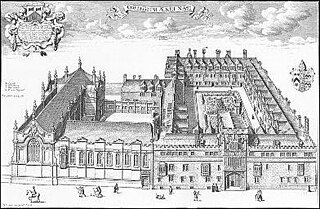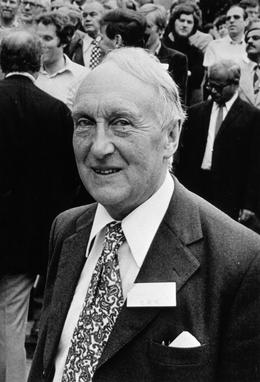
The University of East Anglia (UEA) is a public research university in Norwich, England. Established in 1963 on a 320-acre (130-hectare) campus west of the city centre, the university has four faculties and twenty-six schools of study. The university is a leading member of Norwich Research Park which has one of Europe's largest concentrations of researchers in the fields of agriculture, genomics, health and the environment. It is one of five BBSRC funded research campuses with thirty businesses, four independent research institutes and a teaching hospital on site.

The University of Oxford has thirty-nine colleges, and four permanent private halls (PPHs) of religious foundation. Colleges and PPHs are autonomous self-governing corporations within the university. These colleges are not only houses of residence, but have substantial responsibility for teaching undergraduate students. Generally tutorials and classes are the responsibility of colleges, while lectures, examinations, laboratories, and the central library are run by the university. Students normally have most of their tutorials in their own college, but often have a couple of modules taught at other colleges or even at faculties and departments. Most colleges take both graduates and undergraduates, but several are for graduates only.

Hubert Horace Lamb was an English climatologist who founded the Climatic Research Unit in 1972 in the School of Environmental Sciences at the University of East Anglia.

The Climatic Research Unit (CRU) is a component of the University of East Anglia and is one of the leading institutions concerned with the study of natural and anthropogenic climate change.

Artur Konrad Ekert is a British-Polish professor of quantum physics at the Mathematical Institute, University of Oxford, professorial fellow in quantum physics and cryptography at Merton College, Oxford, Lee Kong Chian Centennial Professor at the National University of Singapore and the founding director of the Centre for Quantum Technologies (CQT). His research interests extend over most aspects of information processing in quantum-mechanical systems, with a focus on quantum communication and quantum computation. He is best known as one of the pioneers of quantum cryptography.
Climate Audit is a blog founded in 2005 by Steve McIntyre.

Philip Douglas Jones is a former director of the Climatic Research Unit (CRU) and a professor in the School of Environmental Sciences at the University of East Anglia (UEA) from 1998, having begun his career at the unit in 1976. He retired from these positions at the end of 2016, and was replaced as CRU director by Tim Osborn. Jones then took up a position as a Professorial Fellow at the UEA from January 2017.
Peter John Hore is a British chemist and academic. He is a Professor of Chemistry at the University of Oxford and fellow of Corpus Christi College, Oxford. He is the author of two Oxford Chemistry Primers on Nuclear Magnetic Resonance (NMR) and research articles primarily in the area of NMR, electron paramagnetic resonance (EPR), spin chemistry and magnetoreception during bird migration.
Richard Anthony "Tony" Stradling (1937-2002), was a notable English semiconductor physicist, latterly professor of physics at Imperial College London.

(William) Graham Richards is a chemist and Emeritus Fellow of Brasenose College, Oxford. He served as head of the department of chemistry at the University of Oxford from 1997 to 2006.
The Climatic Research Unit email controversy began in November 2009 with the hacking of a server at the Climatic Research Unit (CRU) at the University of East Anglia (UEA) by an external attacker, copying thousands of emails and computer files to various internet locations several weeks before the Copenhagen Summit on climate change.
HadCRUT is the dataset of worldwide monthly instrumental temperature records formed by combining the sea surface temperature records compiled by the Hadley Centre of the UK Met Office and the land surface air temperature records compiled by the Climatic Research Unit (CRU) of the University of East Anglia.

Climatic Research Unit documents including thousands of e-mails and other computer files were stolen from a server at the Climatic Research Unit of the University of East Anglia in a hacking incident in November 2009. The documents were redistributed first through several blogs of global warming deniers, who alleged that the documents indicated misconduct by leading climate scientists. A series of investigations rejected these allegations, while concluding that CRU scientists should have been more open with distributing data and methods on request. Precisely six committees investigated the allegations and published reports, finding no evidence of fraud or scientific misconduct. The scientific consensus that global warming is occurring as a result of human activity remained unchanged by the end of the investigations.
John Andrew Todd FMedSci FRS is Professor of Precision Medicine at the University of Oxford, director of the Wellcome Center for Human Genetics and the JDRF/Wellcome Trust Diabetes and Inflammation Laboratory, in addition to Jeffrey Cheah Fellow in Medicine at Brasenose College. He works in collaboration with David Clayton and Linda Wicker to examine the molecular basis of type 1 diabetes.

The Centre for Quantum Computation (CQC) is an alliance of quantum information research groups at the University of Oxford. It was founded by Artur Ekert in 1998.
Freedom of Information requests to the Climatic Research Unit featured in press discussions of disputes over access to data from instrumental temperature records, particularly during the Climatic Research Unit email controversy which began in November 2009.
Roy Gordon Grainger is a New Zealand physicist. He is head of the Earth Observation Data Group in the Atmospheric, Oceanic and Planetary Physics Sub-Department at the University of Oxford and a Tutorial Fellow in Physics at St Hugh's College, Oxford.

The Department of Chemistry is the chemistry department of the University of Oxford, England, which is part of the university's Mathematical, Physical and Life Sciences Division.
Andrew L. GoodwinFRS is a university research professor and professor of materials chemistry at the University of Oxford.
Christiane Renate Timmel is a German chemist who is Director of the Centre for Advanced Electron Spin Resonance at the University of Oxford. Her group make use of electron-spin resonance to understand long-range structures in chemical and biological systems. Timmel was awarded the Tilden Prize on 2020 by the Royal Society of Chemistry for her contributions to electron spin resonance.









